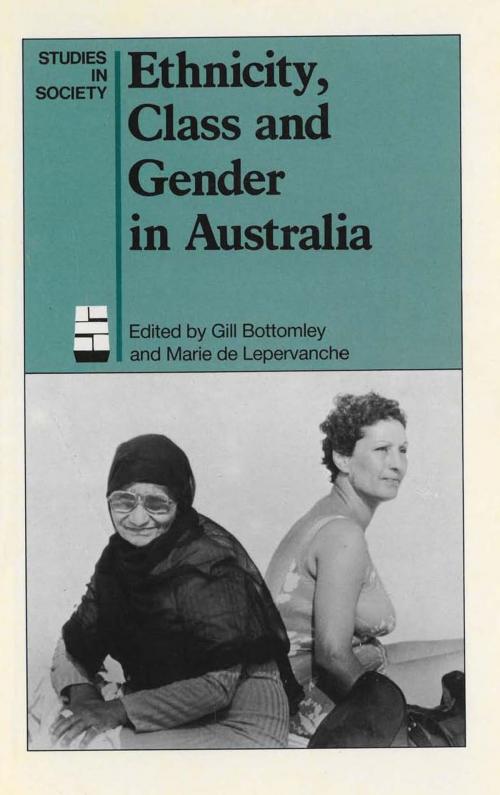| Author: | Gillian Bottomley, Marie de Lepervanche | ISBN: | 9781742696614 |
| Publisher: | Allen & Unwin | Publication: | January 1, 1984 |
| Imprint: | Allen & Unwin | Language: | English |
| Author: | Gillian Bottomley, Marie de Lepervanche |
| ISBN: | 9781742696614 |
| Publisher: | Allen & Unwin |
| Publication: | January 1, 1984 |
| Imprint: | Allen & Unwin |
| Language: | English |
Ethnicity, Class and Gender in Australia is a major study of the impact of immigration on Australian society, and of the fragmentation that has developed along ethnic, class and gender lines. Rather than thumbnail sketches of ethnic groups or celebrations of multiculturalism, it offers detailed critiques of policy and practice, backed up by evidence from the experiences and research of the authors.
This book confronts issues crucial to all Australians: the increasing fragmentation of the workforce; the class, gender and origin-based inequalities present in an 'egalitarian' country; and the ideologies, from racism to multiculturalism, designed to mask these inequalities.
The authors also point to evidence of growing resistance to the status quo, and strategies for working towards a more genuine equality - to more positive education programmes, to political action at the workplace and beyond. The aim is to broaden readers' understanding of Australian society by including those who are so often omitted from analysis of that society.
Ethnicity, Class and Gender in Australia is a major study of the impact of immigration on Australian society, and of the fragmentation that has developed along ethnic, class and gender lines. Rather than thumbnail sketches of ethnic groups or celebrations of multiculturalism, it offers detailed critiques of policy and practice, backed up by evidence from the experiences and research of the authors.
This book confronts issues crucial to all Australians: the increasing fragmentation of the workforce; the class, gender and origin-based inequalities present in an 'egalitarian' country; and the ideologies, from racism to multiculturalism, designed to mask these inequalities.
The authors also point to evidence of growing resistance to the status quo, and strategies for working towards a more genuine equality - to more positive education programmes, to political action at the workplace and beyond. The aim is to broaden readers' understanding of Australian society by including those who are so often omitted from analysis of that society.















